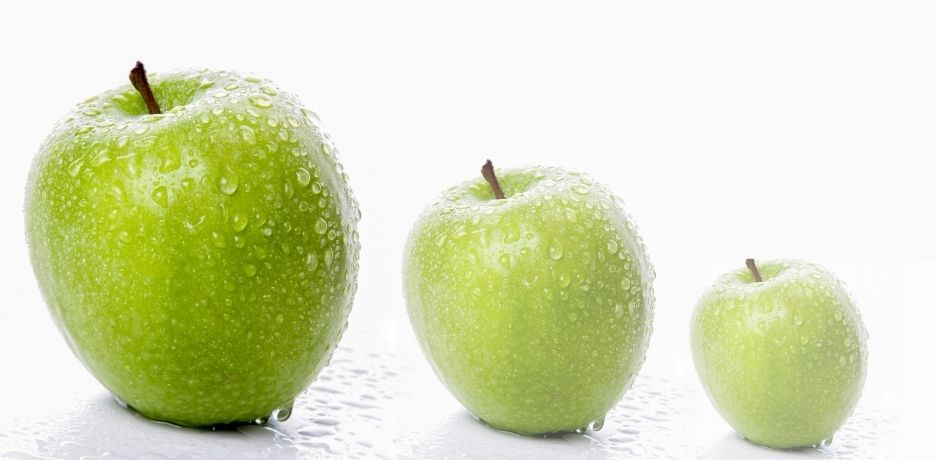
Positive and negative attributes of olive oil, do you know what they are?
Extra virgin olive oil is an authentic olive juice and therefore must reproduce the original characteristics of the fruit from which it comes. These characteristics or attributes can be positive or negative (defects). However, we must be clear that for an oil to be considered extra virgin it must not have any type of defect, none! In this post we will tell you which are the most outstanding attributes.
For an olive oil to be classified as extra virgin, it must comply with the regulations from the physical-chemical point of view. But also from the sensory point of view, which establishes the differences in quality of each reference.
The purpose of the sensory analysis is to identify and determine the intensities of the attributes of the oil, sensory qualities inherited from the variety and ripening stage of the fruit from which it comes. To do this, the EU Official Method is followed, which consists of evaluating the oil using only the senses of smell and taste.
As we explained in this post, to analyze an aove we use an official tasting glass and a watch glass that covers the olive juice, preventing the volatile compounds from being lost. First we smell the oil to make an initial assessment of the positive and negative attributes, evaluating the intensity of fruitiness, that is, the intensity of the aroma that reminds us of healthy fruit. Later, we introduce it in the mouth, covering it in its totality, making an overall evaluation of its characteristics.
Below, we tell you what the positive and negative attributes of olive oil are and what they are.
Positive and negative attributes of oil
The characterization of oils is carried out through descriptors, that is, adjectives that define the attributes of the oils. The characterization of oils is carried out through descriptors, that is, adjectives that define the attributes of the oils. These can be good or bad, giving rise to the so-called positive attributes and negative attributes (defects) of the olive oil, respectively.
There is no doubt that the best oils are those that allow us to perceive the positive attributes in greater quantity and intensity and that, on the contrary, an oil will be considered extra virgin as long as it does not present any type of defect.
Positive attributes
Among the main positive attributes that we can find in an oil are green or ripe fruitiness, as well as spiciness and bitterness. Also, apple, banana, tomato, alloza (green almond) or fig…

The International Olive Council defines them as follows:
- Fruity: set of olfactory sensations characteristic of the oil, depending on the variety of olives, coming from healthy and fresh, green or ripe fruit and perceived directly and/or retronasally. The fruitiness can be green or ripe: the former is reminiscent of green, healthy and fresh fruit, while the latter is reminiscent of ripe fruit.
- Bitter: this is an elemental taste characteristic of oil obtained from green olives or olives in veraison, perceived by the goblet papillae that form the lingual V.
- Spicy: it responds to a tactile sensation of sharpness characteristic of oils produced at the beginning of the season, mainly with olives still green, which can be perceived throughout the oral cavity, particularly in the throat.
It is important to emphasize that a correct extraction of the juice can offer extra virgin olive oils with different degrees of intensity of the positive bitter and spicy attributes. However, it must be taken into account that high intensities can have a negative influence on the degree of consumer acceptance.
Negative attributes
Negative attributes or defects usually appear as a consequence of degradation processes caused by the poor quality of the fruit or due to problems in the processing or preservation process.

Among them we can find the atrojado/borras, mildew, rancid, metallic and vinegary. The International Olive Council defines them as follows:
- Atrojado/Borras: this negative attribute responds to a characteristic flavor of oil obtained from olives piled or stored in such conditions that they are in an advanced degree of anaerobic fermentation, or from oil that has remained in contact with decanting sludge that has also undergone a process of anaerobic fermentation, in olive presses and tanks.
- Moldy-moisture: characteristic flavor of oil obtained from olives in which abundant fungi and yeasts have developed because they have been stored in humid conditions for several days.
- Rancid: flavor of oils that have undergone a deep oxidative process.
- Metallic: flavor reminiscent of metals. It is characteristic of oil that has been in contact, for a prolonged period of time, with metallic surfaces, in the processes of milling, beating, pressing or storage.
- Vinegary-sour/sour-sour: characteristic flavor of some oils reminiscent of wine or vinegar. Its appearance is mainly due to a process of aerobic fermentation of the olives or of the remains of olive paste in the olive oil butts that have not been properly washed, which gives rise to the formation of acetic acid, ethyl acetate and ethanol.
The best oils
Those extra virgin oils that present complexity, that is, that combine different positive attributes, are usually very interesting. They will be oils with an intense and complex fruitiness, in which we will perceive different positive attributes, such as those found in Magnun Sess extra virgin olive oils.
These oils have a great personality and in the mouth they will confirm the attributes perceived in the nose. Both the spiciness and bitterness, without being in excess, are evident but balanced and, of course, do not interfere with the perception of the rest of the positive attributes.

